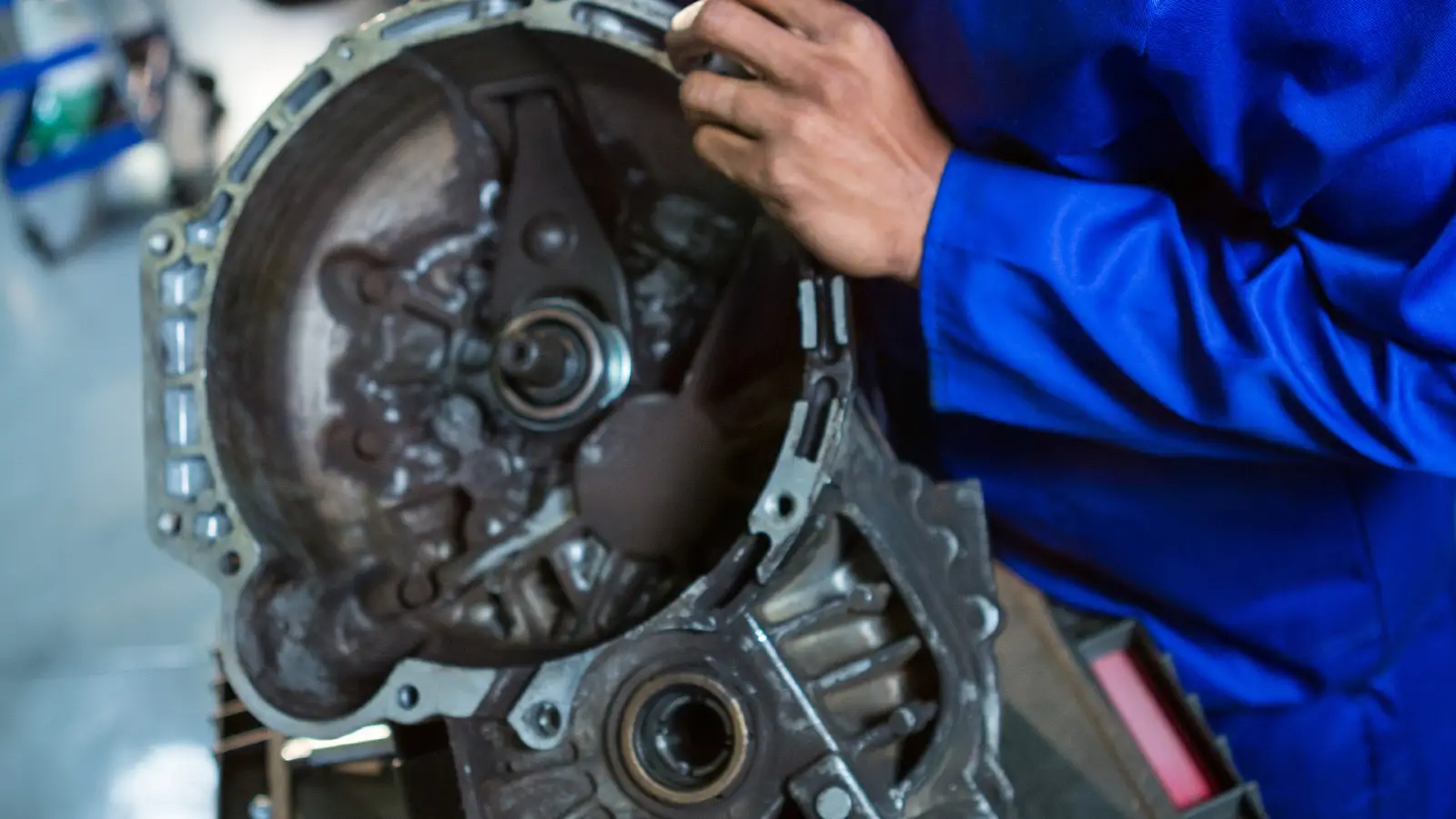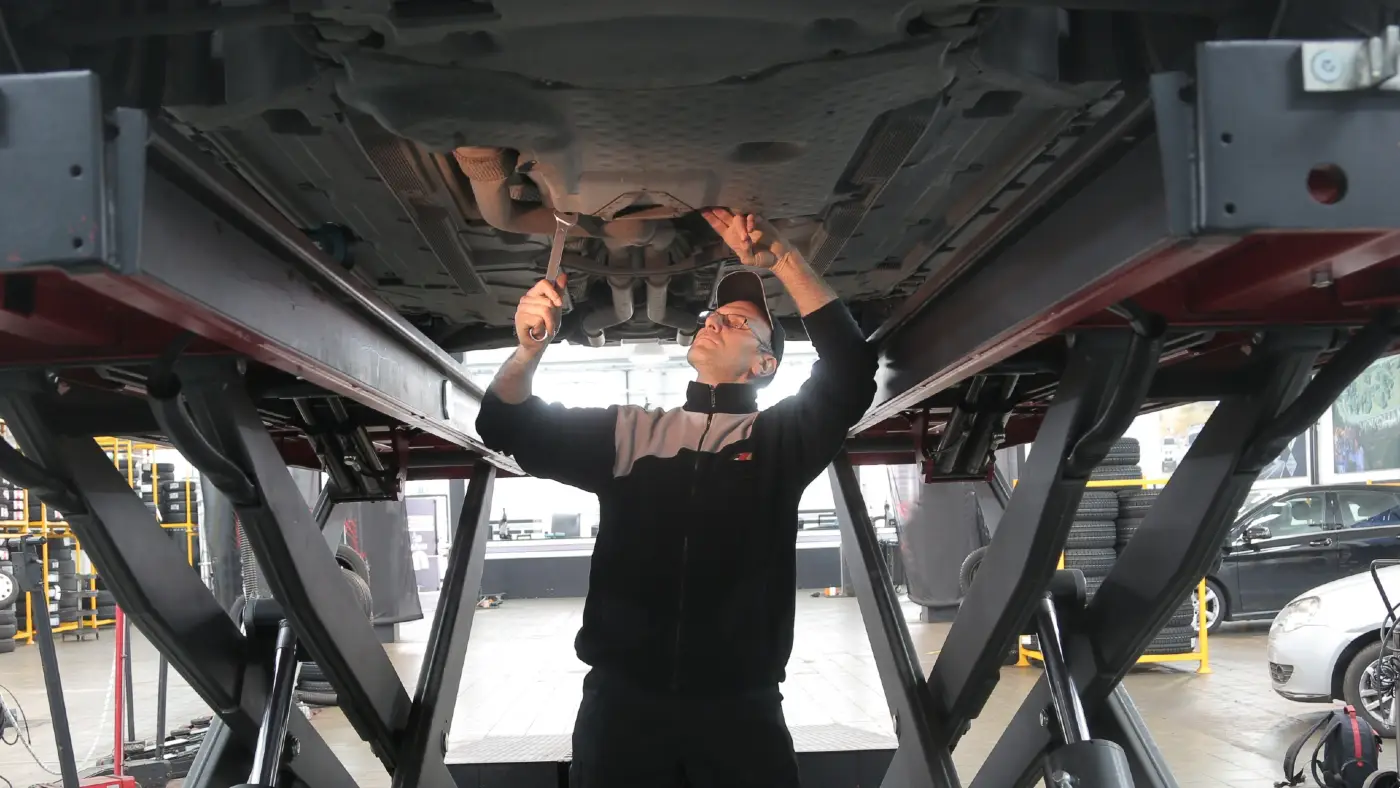Clutch replacement cost guide for 2023
The clutch is a vital part of your vehicle. It’s involved in every part of the operation of your car, as it takes the power from the engine through the gearbox and to the vehicle’s wheels. Without a clutch, your car wouldn’t be able to move at all – it’s that important.
So, it’s understandable that you’d want to know how much it might cost to repair or replace your clutch if you do have an issue. A clutch is a wearable part on a vehicle, so it will wear out at some point and generally need to be changed and this falls under common car problems. Having the right information on how much this might cost you gives you peace of mind that you’ll be able to get it sorted if you need to.
In this article, we’re going to go over what exactly a clutch is, how much it might cost you to get your clutch fixed, as well as some common signs you can look out for to know if your clutch could be wearing out.

What does a clutch do?
Before we go any further, let’s take a bit of time to cover what a clutch is and what function it performs on your vehicle. As many people will realise, the clutch is what disengages the engine from the gearbox and therefore the wheels – if the clutch is engaged, then the power from the engine’s motor is what’s driving the car forward. If you disengage the clutch, by pushing down on the clutch pedal, this breaks the link to the gearbox, meaning you can safely change gears.
There is a lot of complexity to clutch design, and lots of different options on the market, including things like dual clutches and hydraulic clutches. In its simplest form, however, a clutch is simply a unit with two plates, usually separated by some kind of seal to ensure that they mesh together fluidly. When the two plates are pressed together, both sides spin, meaning power goes from the engine through the clutch. When you press the clutch pedal, the clutch disengages one plate from the other, meaning only one plate – on the engine side – is spinning. This means that the clutch takes the power from the engine without transmitting it to the gearbox and therefore through to the car’s wheels.
Of course, the clutch is only controlled by the pedal in a manual car. In automatic vehicles, the clutch functions similarly, but it’s controlled by a computer. Similarly, for vehicles with paddle select gearboxes, a computer in the vehicle will engage and disengage the clutch, alongside selecting the right gear.
How much does it cost to replace a clutch?

So, if your clutch does break, how much is it likely to cost to get it fixed with your local car mechanic? Well, as with a lot of mechanical parts on your vehicle, the total price will depend on the exact manufacturer and model of your vehicle. In general, performance cars and those with large engines will cost more, as the clutch tends to be more expensive – and the engine is more complicated to work on.
We have included a price table that shows the average price of getting a clutch replaced. This price is for an average sized vehicle, so the price will of course vary depending on your specific car. For example, for a small car with a small engine, a clutch replacement may only cost around £300. On the other hand, for a performance vehicle with a specialist clutch, you may be paying around £1000 – a huge difference!
In addition to this, when you’re getting the clutch replaced on your vehicle, you may also need to replace the flywheel. The flywheel is another mechanical part on your vehicle that sits just next to the clutch, and they often need replacing together. If you do need the flywheel to be replaced as well, expect to add around £400 to your bill – but to replace the flywheel on its own could cost twice that, so it’s worth getting both jobs sorted at the same time if required.
Can I repair a clutch?
A question that people commonly ask if they have an issue with the clutch on their vehicle is whether it can be repaired, rather than having to replace the entire clutch. While there are some issues that can be replaced, in general a faulty clutch is caused by a part of the clutch having worn out – so the clutch will usually need to be entirely replaced.
Plus, a large part of the cost of replacing a clutch actually comes in the labour – as the clutch is a complicated and difficult part of the engine to get to. So, if a mechanic is going to go to the trouble of getting to the clutch, it won’t actually save you that much money to repair rather than replace the clutch.
How often will my clutch need replacing?
As we’ve mentioned before, clutches are a wearable item on a vehicle. This means that they do have mechanical parts that wear out over time. The replacement interval on a clutch is usually around 60,000 miles, but this will vary depending on the manufacturer of your vehicle, so check your vehicle’s manual or ask the manufacturer to find out.
Note that this will change depending on how you drive a car – a big part of a clutch’s lifespan can be affected by aggressive or careless driving. If you drive your car carefully and follow our tips to keep your clutch in good condition, you’ll find that it wears out significantly slower.
What can I do to keep my clutch in good condition for longer?
So, as we’ve said, there are a number of things you can do to stop your clutch from wearing it so quickly. Generally speaking, driving your vehicle aggressively will cause various parts, including the clutch, to wear quicker – so in terms of general driver behaviour, the more consistently and smoothly you drive, the better.
There are a few specific things you can do as well. Some of these include:
Keeping the clutch in while waiting at lights
If you keep the clutch pedal pressed while the vehicle is stationary for long periods of time, this can cause excessive wear on the clutch. To prevent wear on your clutch, put your vehicle in neutral when you’re stopped and take your foot off the clutch pedal.
Pressing the clutch slightly while driving
When you’re driving along, it’s possible to press the clutch in slightly without actually affecting the acceleration of the vehicle. This is often known as “riding the clutch”. However, this may actually be causing the clutch to slightly disengage, which can make it wear out more quickly.
Not pressing the clutch fully down
Similarly, if you don’t press down on the clutch pedal hard enough when you’re changing gears, you might be leaving the clutch not fully disengaged. This can again cause premature wear to the clutch – even if the gears don’t grind.
Grinding and not fully engaging gears
However, if you are failing to properly select gears and dropping the clutch in, this can also cause a lot of wear on both the gearbox and the clutch, so it’s worth trying to avoid this.
Taking too long at hill starts or to move off
Another common way to damage a clutch is to take too long to move off from a standing start, or to put too much power down through a partially engaged clutch. While you sometimes may need to do this, either to get the car going on a hill start, or to get going in a hurry – if you do it too often you can cause serious wear to a clutch.
Common signs of a clutch wearing out
There are also a few warning signs that you can keep an eye out for. If you experience any of these things, it’s worth speaking to a mechanic as soon as possible to check over the clutch of your vehicle. If you do have an issue with your clutch, and you don’t get it sorted, it can be very dangerous – so it’s worth erring on the side of caution and getting things fixed before they become a bigger issue.
Biting point seems higher
The “biting point” refers to the point in the travel of the clutch foot pedal in which the engine engages – you’ll feel this as the point at which the engine starts to take over and the car starts to move. If your clutch is starting to wear out, you may notice that the biting point seems higher than it was before, as in, the pedal moves higher up before the engine kicks in. This is a common sign of a clutch that’s starting to wear out.
Burning smell or grinding noises
Some other common signs of a worn or damaged clutch include a burning smell or grinding noises. As the two clutch plates rub together, they generate friction and heat, so if you smell burning rubber when you’re using your clutch, for example when performing a hill start, that’s a sure sign of an issue. Any kind of burning smell when you’re operating a vehicle is worth checking out – as it could be an extremely serious fault.
Common noises when a clutch is starting to fail include grinding or squealing. This can occur either when the clutch pedal is operated, when you change gear, or even all the time that you’re driving. If you do hear grinding or squealing noises frequently when you’re using the clutch, speak to a mechanic as soon as you can.
Changing gear feels more difficult than usual
If changing gear starts to feel more difficult than it usually does in your car, this is another common sign of a clutch that’s starting to wear out. If you need to apply more force to the gear stick, or your car won’t stay in certain gears, this is definitely a sign of a clutch that’s wearing out. Usually, a clutch will start to make it harder to change into the higher gears before the lower ones, so if your car starts falling out of fifth or sixth gear, consider getting your clutch replaced.
The vehicle won’t move forwards when the engine is on
If your clutch does fail completely, your clutch may have failed completely and be stuck with the two spinning plates apart. If this happens, you’ll be able to select a gear but no power will reach the car’s wheels and your vehicle won’t move. You’ll generally have to call a tow truck if this does happen.
Estimates for common car mechanic jobs;
| Job | Estimate |
| Replacement exhaust cost to supply and fit | £180 |
| Cost to replace brake pads and discs | £430 |
| MOT cost | £70 |
| Clutch replacement cost | £850 |
| Full annual car service cost | £220 |